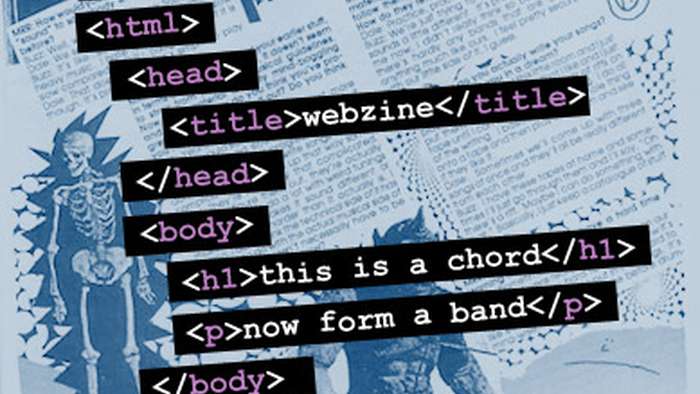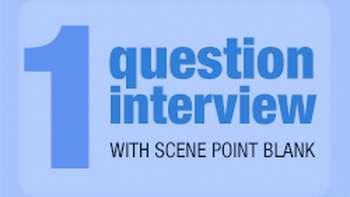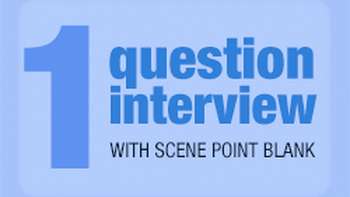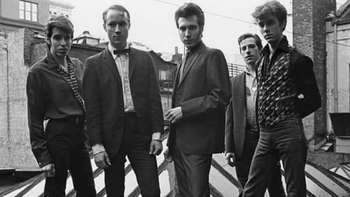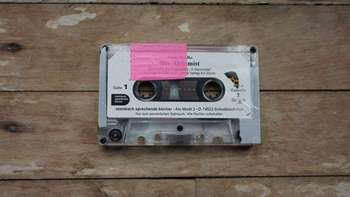Who still reads webzines? Who still publishes them? In a world where Spotify, Twitter, Facebook and Myspace (again) are drowning users in new music, it’s clear that music is more important than ever - but music publications might not be. Of course, we at SPB feel differently, so we reached out to a bunch of fellow punk/alternative webzines to see how they’ve been feeling lately.
We asked each contributor about the changes they’ve seen happen to the music scene; the decline of print (and web) zines; the preferences of their online readers; thoughts on the future and more. The list of contributors is as follows (as well as SPB’s own senior staff, who took part too):
- Pastepunk (Jordan)
- GlueHC (Sean)
- Some Will Never Know (Pim)
- Easycore (Mario)
- Tiny Mix Tapes (Marvin)
- Pure Grain Audio (Chris)
- Teeth of the Divine (Erik & Mikko)
- Punknews.org (Adam)
You can read the individual interviews on the following pages, and we’ve also written up a summary below. Suffice to say, it’s a complex issue and we’re encouraged that webzines still have a place in music in 2013. What do you think?
Foundations: where did we come from?

Punknews.org as it looked when it started, versus today
A common theme from all interviewees was the changing landscape of online media. Jordan Baker, of the now-defunct Pastepunk (closed since we did our interview), pointed out how hard it is now to believe that “the MP3 barely existed on a commercial scale and word ‘blog’ hadn’t been coined yet” at the time of Pastepunk’s foundation. Erik of Teeth of the Divine described how he used to get “BOXES of physical CDs to review, now my email inbox is full of digital music to review”. It’s the same for us here at Scene Point Blank, which is probably a good thing in terms of our postal bill.
Adam White of Punknews.org points out the changing of the guard in terms of promotion: “bands relied more on record label websites and music publicists to disseminate info to those of us in the press. These days it’s a lot easier for bands and their fans to get the word out themselves”. Mario of Easycore agrees: “Any band can be their own PR rep or manager, and in turn, news and announcements can spread so much quicker - if you don't report on it quick enough, the news become "olds" and a webzine is rendered inefficient. Not only do musicians have access to better online tools, but so do the fans.”
"The MP3 barely existed on a commercial scale and word ‘blog’ hadn’t been coined"
- Jordan Baker, Pastepunk
Is there too much music out there now? Mikko of Teeth of the Divine spoke of his fatigue with new bands: “ten years ago I still had the will to actively search for new bands, listen to most of the promos and so forth, but not so today”. Chris Gonda of Pure Grain Audio points out the rise of “a whole new burgeoning industry surrounding digital music in and of itself (digital labels, digital album sites, streaming sites, streaming apps, etc.)”.
With all of this music easily available and with bands able to market directly to fans, is there still a place for traditional music publications in print? Or even on the web?
Did MP3s kill the print zine star?

Remember Napster?
We asked our panellists if they felt webzines were partly responsible for the decline of print music publications, and if webzines themselves were in decline. Many respondents spoke of sites like Tumblr and Facebook scooping up some of their traditional traffic, but Sean of GlueHC suggested that “there still seems to be a sense of legitimacy associated with proper websites”, adding that “those with good content, print or web, tend to stick around”. Jordan from Pastepunk mentioned the challenge of maintaining a daily site: “we’re a fairly small presence on the web, and every weekday is at least another 200 or so press emails. How can anyone stay on top on things? News is old online in three days”. This was made all the more poignant by Pastepunk’s closure not long after this interview, and indeed, Jordan later elaborated that “I have experienced more than a few moments where I felt like I could accomplish whatever I wanted with Pastepunk through our Twitter account and not bother with the rest of the site”.
Mario of Easycore is more positive, though: “One of my favourite features, which has proven to be very effective, is the connectivity between a webzine and its readers' social networks - this is a great way to maintain connected and something print-based magazines couldn't match.” Marvin Lim of Tiny Mix Tapes agrees that the digital crossover can be a potential benefit: “maybe (hopefully) what separates a webzine from a blog from whatever else will become increasingly blurred too.”
Mikko of Teeth of the Divine talks about the decline of online message boards: “going back 10 years, I followed a dozen different message boards. Now I think it's down to four and it's solely because I already made the effort to follow them actively years ago. I'd say Facebook has shielded us like some gated suburban community - if it's not pushed through our walls, it's not worth reading.” Adam of Punknews.org observes that “the glossy ad-driven mass market publications are going to have a toughter time justifying their costs than, say, Maximum Rocknroll will.”
What do people come to webzines for?

Is the multimedia of the web its best asset?
We were curious to know what other webzines found their readers wanting from a digital music publication. Pim of Some Will Never Know talked about the popularity of diverse pieces of their content: “the most popular post is a column called ‘Hardcore 2012 - A rallying cry’, the second two are reviews about Nirvana releases (for the live at the Paramount DVD we were the first media in the world to do a review I think), the American Nightmare European Tour Fall 2001 video I transfered from a VHS tape and uploaded and a guide on how to run a label from our DIY series”.
Jordan of Pastepunk has a more gut-feeling approach: “If our readers show any preference for anything, I’m not sure I would even notice. It probably doesn’t help that I’ve kept blinders on and have mostly resisted forays into creating my own multimedia content. My philosophy for at least the past five years has been to just write about stuff I like or find funny.” Adam of Punknews.org mentioned their podcast, but added “we mostly record those for our own amusement. Punknews is very much a site that people skim for mentions of their favourite bands, so that’s more important to our visitors than the type of media itself. Text seems to work best for us as it requires the least commitment from the reader”. Is there a theme emerging here? Editors are telling us they have too much new stuff coming in to cover, and readers seem to be asking for things that require the least of their time to consume.
"Text seems to work best for us as it requires the least commitment from the reader"
- Adam White, Punknews.org
Chris of Pure Grain Audio has more patient readers, perhaps: “While we love to write and push for top quality written content, we cannot deny the fact that our Audio and Video sections are the most popular.” Marvin of Tiny Mix Tapes weighed in with a helpful reminder on priorities, telling us how “a really popular review in our mind doesn't inherently make it more valuable than a multimedia post on an obscure artist who needs more exposure”.
What about the comments... do you have a community on your zine?

Comic via xkcd
The mantra of “never read the comments” can be painfully true in some cases. How about for webzines? Punknews’ community is famous for its memes, users and offshoots. Adam told us that “if we were starting from scratch we’d absolutely look to something like Disqus as many of the features both users and moderators have come to expect are baked into such products”. Mikko of Teeth of the Divine talks about the “pretty decent readership from the quality standpoint” their site has, while Erik adds “I wish bands and label folks would chime in a little more often, though. I spent 2-3 hours for that piece, so a little ‘hey thanks for the review’ wouldn’t hurt”.
Everyone talked about problems with spam comments, with Pim of SWNK sharing their novel solution: ask would-be users to answer a question about Bad Brains before they can post. Not everybody felt they needed a gaggle of users underneath each post, though: Jordan of Pastepunk says that “I’ve always presented our content as a ‘take it or leave it’ kind of thing, and while I obviously value the opinion of our readers, I never wished that element would become part of Pastepunk’s identity”. He talked about the instant-gratification of real-time reactions from Twitter as being equally interesting instead.
Where do we go now?

Is the dead tree press the future of music publishing?
It’s not clear what the future of digital media is, let alone digital publishing. We asked our panellists what they thought the future was for them: would they branch out to new platforms? Or fall back to print?
Many people spoke about the importance of building mobile-friendly webpages. Marvin of Tiny Mix Tapes pointed out the risks of “social” publishing: “as the web becomes even more ‘social’, seems like web publishing aims to provide content that will spread quickly as a way to embed itself in social conversations. These days, that means linkbait articles at the expense of critical analysis. But I don't think that's inherently negative, and also don't believe the two are mutually exclusive”. Adam of Punknews.org found similar challenges: “I’m hesitant to change our writing style to cater to the trends in social sharing. While it may be good click-bait, I’d feel silly writing unnecessary and arbitrary lists like “The Top 7 Reasons The Next Bad Religion Album Will Blow You Away” so we’ll do our best to avoid playing that game”.
Mikko of Teeth of the Divine talked about cross-platform zines: “the goal is to make the experience as painless as possible to the reader, so that they have to put minimal effort in checking us out and finding the content they want. No matter what device they are using”.
"People will still crave a commercially unbiased opinion.”
- Jordan Baker, Pastepunk
Chris of Pure Grain Audio wasn’t tempted by print: “I don't think we'd ever consider experimenting with print. While super cool and offering a somewhat ‘retro’ feel (scary to say), print is not as viable of a business”.
Mario of Easycore is uncertain but excited: “with so many useful sites, such as Bandcamp, SoundCloud, and all of the social networks, I think we're at the peak of what's currently achievable, though I can't wait to see what's next”.
The last word should, perhaps, go to Jordan: “as great as the music recommendation engines and algorithms are in the online music world and social media context, there has to be some human validation, and word of mouth only goes so far, especially now that we are in a world built around our own silos of interest. People will still crave a commercially unbiased opinion.”
Closing thoughts
It’s perhaps a little starry-eyed to claim we’re in some brave new world where music is better than it ever was. Sure, there’s plenty more of it out there and it’s simpler and cheaper to hear new stuff (and old) whenever you want.
The role of music publications is a little unclear right now: are we here to drive traffic to third-party services like Bandcamp, Spotify and Facebook? Are we an antidote to those things?
From Scene Point Blank’s perspective, we’re fairly clear: our editor Loren writes: “while some of our reviews that are obscure today may not generate traffic, it's an important archive about independent music”. Similarly, I’m hopeful for the future too: “our value is curating the stuff that's out there and recommending things for a relatively niche audience. If you can listen to any record you like whenever you like, that's cool - but it's an enormous amount of choice. Good publications can help sort that stuff and point you to the real goldmines out there”.
Hardly any of us in the webzine trade are in it for the money, but for the love of sharing good music. None of us really know what’s coming next, but as long as people want to hear about what we think is cool, and we adapt and change as the technical expectations evolve, then we think there’s still a place for us.
--
What do you think? Why do you keep reading webzines? We’d love to hear from the audience’s perspective, too.
